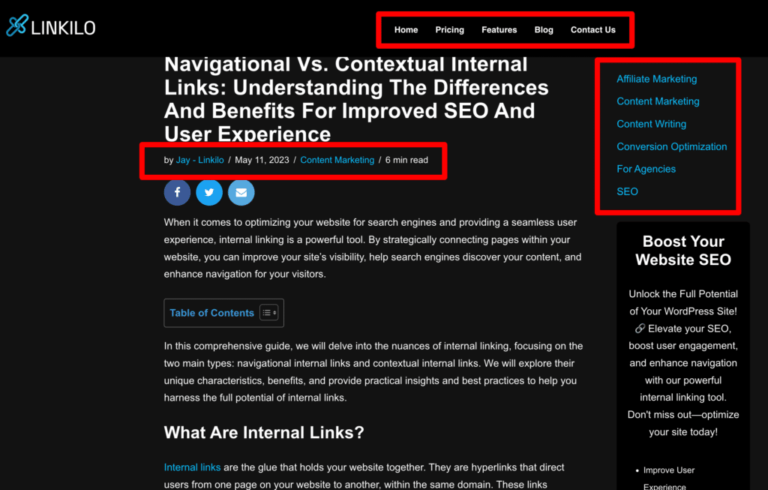Local SEO, or local search engine optimization, is the process of optimizing a website to rank higher in local search results. It focuses on improving a business’s visibility in local searches, such as “restaurants near me” or “plumbers in [city]”. Local SEO is crucial for businesses that have a physical location or serve customers in specific geographic areas.
The importance of local SEO for businesses cannot be overstated. With the rise of mobile devices and voice search, more and more people are using search engines to find local businesses. In fact, according to Google, nearly 50% of all searches have local intent. This means that if your business is not optimized for local search, you could be missing out on a significant amount of potential customers.
There are numerous benefits to implementing a strong local SEO strategy. First and foremost, it can help increase your visibility in local search results, making it easier for potential customers to find you. This can lead to more website traffic, phone calls, and foot traffic to your physical location. Additionally, local SEO can help you build trust and credibility with your target audience. When your business appears at the top of local search results, it signals to users that you are a reputable and trustworthy business.
Key Takeaways
- Local SEO is important for businesses targeting customers in specific geographic areas.
- Claiming and optimizing your Google My Business listing is crucial for local search visibility.
- Optimizing your website for local keywords can improve your ranking in local search results.
- Building local citations and backlinks can increase your website’s authority and visibility.
- Encouraging customer reviews and ratings can improve your local search ranking and attract more customers.
Claim Your Google My Business Listing
One of the first steps in optimizing your local SEO is to claim and verify your Google My Business listing. Google My Business is a free tool provided by Google that allows businesses to manage their online presence across Google’s platforms, including Google Search and Google Maps.
To claim your Google My Business listing, start by searching for your business on Google. If it already exists, you can click on the “Own this business?” link and follow the prompts to claim it. If it doesn’t exist, you can create a new listing by clicking on the “Add your business to Google” link.
Once you’ve claimed your listing, it’s important to ensure that all of the information is accurate and complete. This includes your business name, address, phone number, website URL, and hours of operation. Providing accurate and up-to-date information not only helps potential customers find you, but it also improves your chances of ranking higher in local search results.
In addition to basic information, you should also optimize your Google My Business listing by adding photos, writing a compelling business description, and selecting relevant categories. Photos can help showcase your products or services and give potential customers a visual representation of your business. The business description should be concise and highlight what sets your business apart from the competition. Finally, selecting relevant categories helps Google understand what your business is about and improves your chances of appearing in relevant search results.
Optimize Your Website for Local Keywords
Targeting local keywords is another crucial aspect of local SEO. Local keywords are search terms that include a specific location, such as “plumbers in [city]” or “best pizza in [neighborhood]”. By optimizing your website for these keywords, you can increase your chances of ranking higher in local search results.
To conduct keyword research for local SEO, start by brainstorming a list of relevant keywords that include your target location. You can use tools like Google Keyword Planner or SEMrush to find additional keyword ideas and see how often they are searched for. Look for keywords with a decent search volume and low competition.
Once you have a list of target keywords, you can start optimizing your website for them. This includes incorporating them into your website’s meta tags (title tag and meta description), headings, content, and URLs. However, it’s important to use keywords naturally and avoid keyword stuffing, as this can negatively impact your website’s rankings.
In addition to on-page optimization, you should also consider creating location-specific landing pages on your website. These pages can provide valuable information about your business’s presence in different locations and help you rank higher in local search results. Make sure to include relevant keywords and location-specific information on these pages.
Build Local Citations and Backlinks
| Metrics | Description |
|---|---|
| Number of Citations | The total number of online mentions of your business name, address, and phone number (NAP). |
| Citation Accuracy | The percentage of citations that have accurate and consistent NAP information across all directories. |
| Domain Authority | A score that predicts how well a website will rank on search engine result pages (SERPs). |
| Number of Backlinks | The total number of links from other websites that point to your website. |
| Backlink Quality | The relevance and authority of the websites that link to your website. |
Local citations and backlinks are important factors in local SEO. A local citation is any online mention of your business’s name, address, and phone number (NAP). This can include directory listings, review sites, and local business listings. Backlinks, on the other hand, are links from other websites that point back to your website.
Local citations and backlinks are important for several reasons. First, they help search engines verify the accuracy of your business’s information. The more consistent your NAP information is across different websites, the more trustworthy your business appears to search engines. Second, local citations and backlinks can help improve your website’s authority and credibility. When reputable websites link to your website, it signals to search engines that your website is a valuable resource.
To build local citations, start by submitting your business’s information to popular online directories such as Yelp, Yellow Pages, and TripAdvisor. Make sure to provide accurate and consistent NAP information across all directories. Additionally, consider reaching out to local newspapers, blogs, and community websites to see if they would be interested in featuring your business.
Building backlinks can be a bit more challenging, but there are several strategies you can use. One approach is to reach out to other local businesses or organizations and ask if they would be willing to link to your website. You can also create valuable content that other websites would want to link to, such as informative blog posts or helpful resources. Finally, consider guest blogging on other websites in your industry or participating in local events or partnerships that can generate publicity and backlinks.
Encourage Customer Reviews and Ratings
Customer reviews and ratings play a significant role in local SEO. They not only help potential customers make informed decisions about your business, but they also signal to search engines that your business is reputable and trustworthy.
To encourage customers to leave reviews and ratings, start by providing excellent customer service and a positive experience. Happy customers are more likely to leave positive reviews. Additionally, make it easy for customers to leave reviews by providing links or instructions on your website, social media profiles, and email communications.
It’s important to note that you should never incentivize or pay for reviews, as this goes against the guidelines of most review platforms. Instead, focus on providing a great customer experience and encouraging customers to share their feedback organically.
When it comes to managing customer reviews, it’s important to respond promptly and professionally to both positive and negative reviews. Thank customers for their positive feedback and address any concerns or issues raised in negative reviews. This shows potential customers that you value their feedback and are committed to providing excellent service.
Utilize Social Media for Local Engagement

Social media can be a powerful tool for local engagement and local SEO. It allows you to connect with your target audience, build brand awareness, and drive traffic to your website.
To use social media for local engagement, start by identifying the social media platforms that are most popular among your target audience. This could be Facebook, Instagram, Twitter, or LinkedIn. Create profiles on these platforms and optimize them with accurate and consistent NAP information.
Once your profiles are set up, start engaging with your audience by sharing valuable content, responding to comments and messages, and participating in local conversations. You can also use social media advertising to target specific geographic areas and reach potential customers in your local area.
To optimize your social media profiles for local SEO, make sure to include relevant keywords in your profile descriptions and posts. Additionally, encourage customers to check-in or tag your business when they visit, as this can help improve your visibility in local search results.
Implement Local Schema Markup on Your Website
Schema markup is a type of structured data that helps search engines understand the content on your website. Local schema markup, specifically, provides additional information about your business’s location, contact information, and hours of operation.
Implementing local schema markup on your website can help improve your visibility in local search results and provide users with more detailed information about your business. It can also help search engines display rich snippets, such as star ratings and reviews, in search results.
To implement local schema markup on your website, you can use Schema.org’s LocalBusiness schema. This schema includes properties for your business’s name, address, phone number, website URL, and hours of operation. You can add this markup to your website’s HTML code or use a plugin or tool to generate the code for you.
Create Location-Specific Content
Creating location-specific content is another effective strategy for local SEO. This type of content provides valuable information about your business’s presence in different locations and can help you rank higher in local search results.
To create location-specific content, start by identifying the different locations you serve or want to target. Then, create dedicated landing pages or blog posts for each location. These pages should include relevant keywords and provide information about your business’s presence in that location, such as address, phone number, hours of operation, and customer testimonials.
In addition to location-specific pages, you can also create content that is relevant to your local audience. This could include blog posts about local events or news, guides to local attractions or activities, or interviews with local influencers or experts. By creating valuable and relevant content for your local audience, you can attract more website traffic and build trust and credibility with potential customers.
Host Local Events and Partnerships
Hosting local events and partnerships is not only a great way to engage with your local community but also an effective strategy for local SEO. Local events and partnerships can generate publicity, backlinks, and social media mentions, all of which can help improve your visibility in local search results.
To host local events, consider organizing workshops, seminars, or networking events that are relevant to your industry or target audience. You can also participate in local trade shows or sponsor local community events. By hosting or participating in these events, you can showcase your expertise, build relationships with potential customers, and generate buzz around your business.
When it comes to partnerships, consider collaborating with other local businesses or organizations that share a similar target audience. This could include cross-promotions, joint marketing campaigns, or co-hosting events. By partnering with other businesses, you can expand your reach and tap into their existing customer base.
Monitor Your Local SEO Performance and Adjust Accordingly
Monitoring your local SEO performance is crucial to ensure that your efforts are paying off and to identify areas for improvement. There are several metrics you should track to measure the success of your local SEO strategy.
First and foremost, monitor your website’s organic search traffic and rankings for local keywords. Are you seeing an increase in website traffic from local searches? Are you ranking higher in local search results? These metrics can give you insights into the effectiveness of your keyword targeting and on-page optimization efforts.
Secondly, track the number and quality of your online reviews and ratings. Are you receiving more positive reviews? Are there any negative reviews that need to be addressed? Monitoring customer feedback can help you identify areas for improvement and address any issues that may be impacting your reputation.
Finally, keep an eye on your website’s backlink profile and the number of local citations you have. Are you gaining new backlinks from reputable websites? Are there any new local citations that have been created for your business? These metrics can help you gauge the success of your link building efforts and the accuracy of your business’s information across different platforms.
Based on the insights gathered from monitoring your local SEO performance, you can make adjustments to your strategy as needed. This could include optimizing your website further, targeting different keywords, or focusing on different marketing channels. By continuously monitoring and adjusting your local SEO strategy, you can ensure that you are maximizing your visibility and attracting the right customers.
In conclusion, local SEO is a crucial aspect of digital marketing for businesses with a physical location or those that serve customers in specific geographic areas. It helps improve a business’s visibility in local search results, drives website traffic and foot traffic, and builds trust and credibility with potential customers.
To optimize your local SEO, start by claiming and verifying your Google My Business listing and ensuring that all of the information is accurate and complete. Optimize your website for local keywords by conducting keyword research and incorporating relevant keywords into your website’s meta tags, headings, content, and URLs. Build local citations and backlinks to improve your website’s authority and credibility. Encourage customer reviews and ratings to build trust with potential customers and signal to search engines that your business is reputable. Utilize social media for local engagement by creating profiles on popular platforms, sharing valuable content, and participating in local conversations. Implement local schema markup on your website to provide search engines with more detailed information about your business’s location. Create location-specific content to attract more website traffic and build trust with potential customers. Host local events and partnerships to generate publicity, backlinks, and social media mentions. Finally, monitor your local SEO performance and adjust your strategy accordingly based on performance metrics.
By prioritizing your local SEO efforts and implementing these tips and strategies, you can improve your business’s visibility in local search results, attract more customers, and ultimately grow your business.
FAQs
What is local SEO?
Local SEO is the process of optimizing a website to rank higher in local search results. It involves optimizing the website’s content, meta tags, and other elements to make it more visible to local customers.
Why is local SEO important for local businesses?
Local SEO is important for local businesses because it helps them reach potential customers in their local area. By optimizing their website for local search, businesses can increase their visibility and attract more customers to their physical location.
What are some key factors in local SEO?
Some key factors in local SEO include optimizing the website’s content and meta tags for local keywords, building local citations and backlinks, and ensuring the website is mobile-friendly and has a fast loading speed.
What are local citations?
Local citations are mentions of a business’s name, address, and phone number (NAP) on other websites. These citations help to establish the business’s presence in the local community and can improve its visibility in local search results.
What are backlinks?
Backlinks are links from other websites that point to a business’s website. They are an important factor in SEO because they signal to search engines that other websites consider the business’s content to be valuable and relevant.
How can a business improve its local SEO?
A business can improve its local SEO by optimizing its website for local keywords, building local citations and backlinks, ensuring its website is mobile-friendly and has a fast loading speed, and claiming and optimizing its Google My Business listing.






